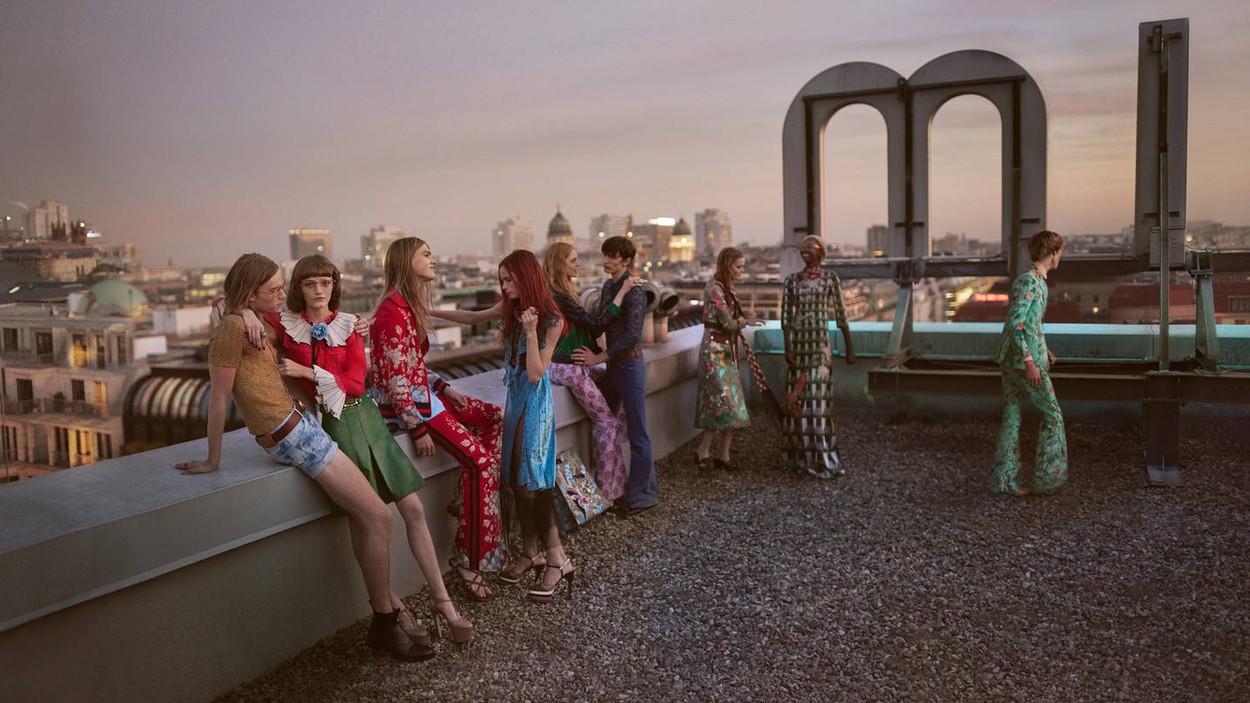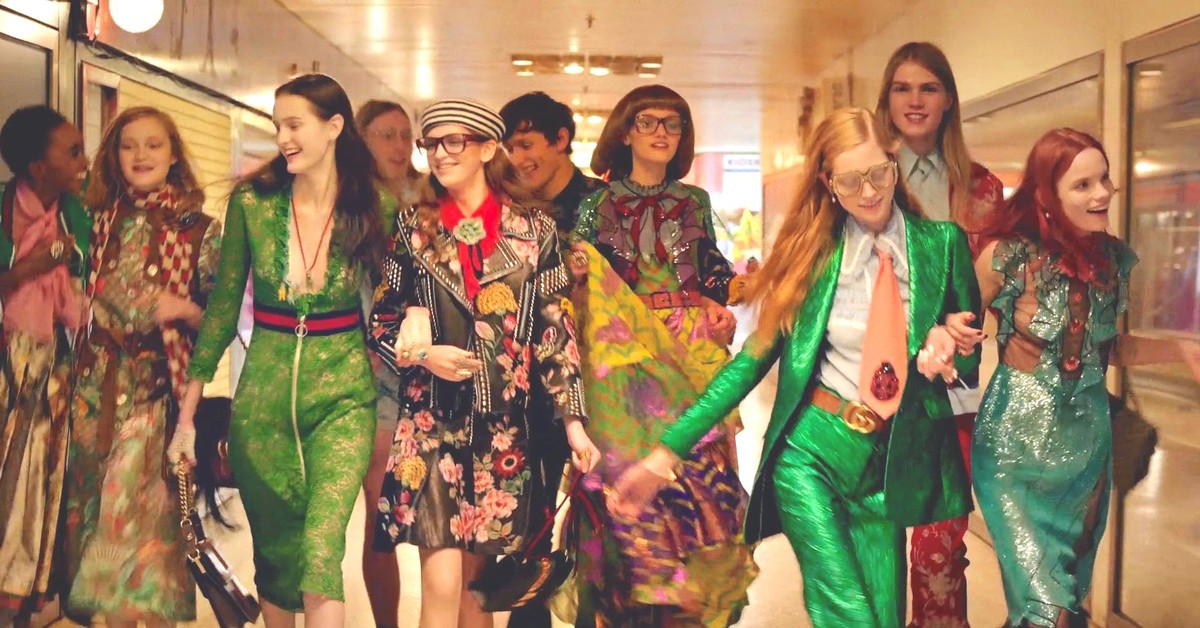In 2017, Gucci’s sales grew by 44.6% over the previous year. And in the first quarter of 2018, the luxury brand posted nearly $2.2 billion in sales revenue, up 48.7% compared to the same period last year.
What’s behind Gucci’s blastoff? One reason is millennials.
As any experienced marketer will tell you, luxury branding requires a different approach than standard B2C efforts. According to the Financial Times, millennials are “the world’s most powerful consumers.” While many other luxury brands have struggled to tap into the growing millennial demand, Gucci has found an eager and expanding base. According to Francois-Henri Pinault, CEO of Kering, Gucci’s parent company, millennials and Gen Z account for nearly 50% of Gucci’s total sales.
According to Fast Company, Gucci CEO Marco Bizzarri’s partnership with famed Harlem tailor Dapper Dan has helped transform the Gucci brand for a new generation of luxury consumers: the hip-hop crowd. Gucci’s name has been used in lyrics by artists including Pusha T and 2 Chainz, which have likely influenced millennial demand.
However, there’s more to Gucci’s success with millennials than simply knowing what’s “cool.” To win with millennial consumers, brands need to understand what millennials value: personal satisfaction and purpose.
Redefining Luxury
There are two things that have traditionally marked a brand as being “luxury.” The first is high-quality craftsmanship — you can’t have luxury without superior quality. The second is exclusivity — luxury is often thought about as showing off to everyone else.
According to a Deloitte survey, millennials don’t buy into these traditional selling points. For one, the term “luxury” has lost some of its cachet to lower-cost competitors. Millennials are less interested than previous generations in outward displays of status. According to the report, which surveyed 1,005 millennial luxury consumers in the U.S., U.K., Italy and China, “Respondents from all four geographies were most likely to say that they bought luxury to please themselves, not to impress others or to do what influencers or celebrities said they should do.”
More than anything, millennial consumers crave purpose, authenticity and passion. They’re attracted to companies that demonstrate a committed, ethical approach to business. So, luxury brands must embrace a higher purpose if they want to win over millennials.
Luxury Brands Moving To Purpose
Issues like sustainability, transparency and ethical manufacturing have received increasing attention in the media, but the luxury industry has been slow to respond, as the 2018 Fashion Transparency Index reports. Profits are strong now, which is why some brands might not see the need to change. However, millennial consumers demand change, and their volume is increasing. A 2015 Nielsen study confirms that consumers who are willing to pay more for a product do so with sustainability in mind, prioritizing the demographic’s commitment to social values.
According to various sources, the fashion industry is one of the most wasteful in terms of pollution. For example, Burberry’s decision to burn $40 million worth of stock rather than selling it at a discount was meant to maintain the brand’s exclusive status but instead drew considerable criticism.
Perhaps another reason why Gucci is doing so well has something to do with its new purpose-driven, environmentally progressive program, Gucci Equilibrium. The brand has established this program through a new microsite that reports the company’s CSR policies, environmental impact, employee satisfaction and structural innovations. This effort grants Gucci the authenticity, transparency and, most importantly, accountability that consumers seek.
They’re not alone: Stella McCartney was one of the earliest and most vocal luxury fashion companies to adopt sustainable practices. Adidas has led the charge in the footwear space (yes, Adidas is a luxury brand now) by tapping into purpose-based branding with a focus on eliminating waste and environmental impact. It has pioneered the “sustainable sneaker” by using more eco-friendly materials.
So, how can you incorporate these tactics into your own luxury branding strategy? As some would say, the secret’s in the sauce.
High-end luxury still revolves around the continued artisan craftsmanship that has long been part of the industry’s DNA. Integrating sustainability into that narrative is key — millennials love to know how the “sauce” is made.

A New Luxury Model
While brick-and-mortar retail will always be important to luxury fashion, the future of the industry is online. The rise of e-commerce is already in full swing, with many luxury brands building online shopping experiences to access millennial consumers in their natural habitats. According to Deloitte, 20.5% of millennials cited social media as their main source of high-end fashion and luxury product trends, compared to 15.1% who cited brands’ websites.
Millennial luxury shoppers’ online migration has resulted in another major shift in the fashion industry: “recommerce.” Essentially, this is a higher-end online resale or consignment e-commerce store of authentic, highly desired fashion brands. Examples of recommerce brands include Luxury Garage Sale, Farfetch, TheRealReal, Poshmark and thredUP.
Luxury fashion recommerce is also powered by an unusual twist on purpose. By promoting resale and repurposed fashion, it helps contribute to sustainable consumption. We can look to one of the original sustainability designers, Stella McCartney, as a role model. Not only does she boast a line of high-quality, vegan products, but she also pays attention to the post-purchase life of her clothing.
The eponymous designer recently partnered with online retailer TheRealReal to facilitate future consignment. The futility of fast fashion is no longer acceptable. Well-made clothing that lasts is what’s in, and this also means educating consumers on proper care and storage to ensure longevity.
Capturing The Millennial Market
The luxury market has grown at a staggering pace in recent years, yet luxury brands face serious challenges in the years ahead if they fail to engage millennial consumers on their own terms. Purpose is key. Brands must demonstrate that they stand for more than just making money. Promoting sustainability and ethical business practices is one way to stand out. Embracing millennial-focused business models such as luxury fashion recommerce also offers a way forward.
Source: Forbes
